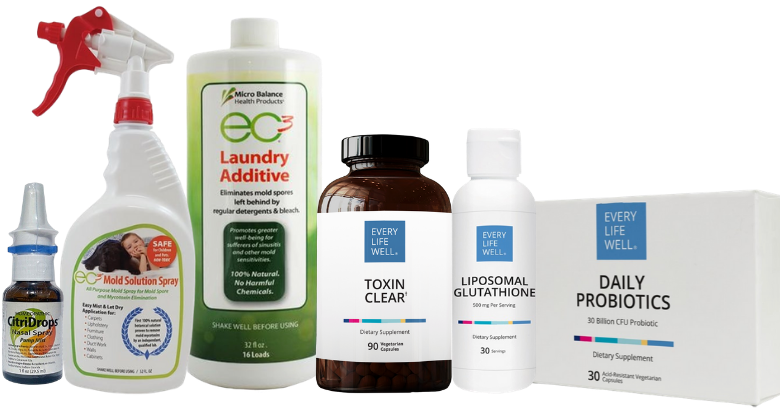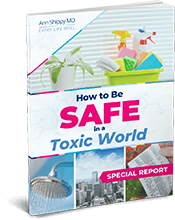4 More Tips To Boost Your Body’s Innate Defense
Resilience is a significant message when it comes to immunity.
Although we often get messaging about “boosting” the immune system, this is more analogous to a short-term or quick-fix option. When we think about building or boosting our resiliency, we are referring to building an immune system that supports us over the long-term.
One of the reasons that the United States has been so hard-hit by COVID-19 is simply because as a population we are less resilient. We have high rates of chronic disease and obesity, a great many of us rely on a food supply of chemical ridden, processed, and sugar-rich foods.
As a society we also tend to have poor health behaviors when it comes to sleep, exercise and stress management. In short, we don’t have our foundations of health covered.
To learn more about immunity and resilience and how to put the foundational pieces in place, click here.
With the basics covered, we then have the opportunity to move on to some of the finer details of immune resilience. These include vitamin D levels, nutrient testing and even our mindset. Self-care continues to be more important than ever. Taking the time to put a healthy lifestyle in place now, will only increase our ability to handle viruses of the future, both as individuals and collectively. Not to mention all of the other curve balls that life throws our way.
Keep reading to learn more about these next level tips for building immune resilience:
- Check your vitamin D status
- Check your zinc status
- Magnesium’s superpower
- Check your attitude and stress
Let’s get started with these four ways to improve immune resilience!
1. Check Your Vitamin D Status
Vitamin D is one of the most talked about immune nutrients, and for good reason! Recent research shows a connection between vitamin D status and severity of COVID-19 cases suggesting that robust vitamin D levels contribute to immune resiliency.
While the sunlight continues to decline, it’s a good time to make sure your body continues to feel the sun in the form of top-notch vitamin D status. This requires a simple blood test available through your physician. Be sure to ask for it specifically since it isn’t always included in routine blood work.
While the lab will call you good if your levels (of 25 hydroxy vitamin D) are above 30 ng/mL, optimal levels for immune health are between 50 and 80 ng/mL. This is the level I recommend for prevention and improved outcomes in the face of COVID-19.
To increase levels, talk to your provider about a personalized supplemental dose based on your test results. Without test results, most adults need to supplement with 5000 IU per day of D3, which is more than you’ll find in most multivitamins. In addition, increase food sources of vitamin D throughout the winter including wild salmon and other fatty fish, pastured eggs (the vitamin D is in the yolk so be sure to eat the whole egg) and liver.
2. Check Your Zinc Status
When requesting that vitamin D test, ask for a RBC zinc check too. Zinc is another critical nutrient for the immune system, and one that those most at risk for COVID-19, including the elderly, tend to be deficient in. Zinc functions in both the innate (first line of defense) and adaptive immune systems and even suppresses viral attachment, playing a role in fighting respiratory infections. For these reasons, zinc is a key player (along with vitamin C) in the protocol used in COVID-19 treatment.
As we age, zinc status tends to go down for a variety of factors including not eating enough zinc-rich foods like grass-fed beef, oysters and pumpkin seeds. In addition, stomach acid tends to decline with age making it harder to digest protein and extract the minerals from these foods.
Did you know that zinc also plays a role in our sense of taste? When we are deficient in zinc we can’t taste our food as well and might go for more salty, sweet or processed options. Interestingly, a loss of taste and smell is a documented symptom of COVID-19 and in some cases is the first, or only, sign of the disease.
In lieu of a zinc blood test, an oral zinc taste test is an easy option to detect deficiency. When liquid zinc is placed on your tongue, you won’t taste it or only mildly taste it if your zinc status is low. If zinc status is robust, you will immediately taste a very strong metallic taste in your mouth.
The Institute for Functional Medicine recommends 30-60 mg of zinc per day in divided doses depending on status. Zinc glycinate is an absorbable form that is best taken with food.
3. Magnesium’s Superpower
Since we are on the topic of minerals, let’s talk about one more: magnesium. Magnesium plays so many important roles in the body and is involved in over 300 enzymatic reactions. Because magnesium is depleted in the food supply, it is a nutrient that is also widely deficient in the entire population.
Because magnesium is involved in so many pathways in the body, it’s not surprising that it supports the immune system as well. Magnesium is involved in antibody production and several specific immune cell functions. With low intake of magnesium, we may be more prone to viral infections.
The best Paleo sources of magnesium are dark leafy green veggies, nuts and seeds. Since it can be challenging to get enough through food alone given modern agricultural practices, supplementation is a very safe and supportive option.
Taking magnesium glycinate at night, helps with relaxation and sleep, which is also good for the immune system and whole system. Magnesium is also absorbed through the skin from Epsom salt baths or a magnesium oil massage.
Correcting magnesium deficiency – and maintaining good status – is key for building resilience in your body and life.
4. Check Your Attitude
Finally, let’s talk a little about stress and mindset. Stress, especially chronic stress, negatively impacts immune system function and decreases resiliency.
Stress makes you more likely to get sick when exposed to a virus. This is a little scary, given how stressful 2020 has been for so many people. If you don’t have good stress management tools under your belt now is the time. It will help you through these darker months and set you up for more resiliency in your life.
One of the key pieces here is gratitude. Adopt an attitude of gratitude. It’s easy to focus on what is going wrong, what is hard and what we are missing out on during this time in history.
We have so many collective and also personal stressors colliding at the moment and it completely makes sense that stress, anxiety and depression is high.
Even under these circumstances, it is possible to be thankful. Even just taking a few minutes in the morning to focus on what you are grateful for sets the tone for the entire day. It might be an embrace from a child, the sun on your face, the roof over your head or feeling grounded in your body.
In addition to a simple gratitude practice, here are some other tools for building resilience in the face of stress:
- Heartmath – Heartmath is a tool and a system for using direct heart rate data to train the nervous system to be in a more parasympathetic, or relaxed, state. The Inner Balance tool connects to your smart phone and is used with the Heartmath app. You can see real time changes in your physiology as you practice various breathing exercises.
- Muse – Muse is a brain-sensing headband used to help up level your meditation practice so you get the most benefit. It’s for beginners and advanced meditators alike. Since both lowering stress and improving sleep support a resilient immune system, this device is perfect for those who need both.
We can’t expect to burn the candle at both ends, live with such high stress and not burn out at some point. With this much pressure on our bodies to support us in this fast-paced, productive world, it’s not surprising that the immune system loses resilience. Before it gets to a crisis point, or if you’re already there, it’s time to take a look at how you live your life.
Day in and day out how you care for yourself builds and sustains your health… and immunity. This means how you nourish yourself with food, your daily self-care habits, prioritizing sleep and movement.
On top of that, take a look at your nutrient status including vitamin D, zinc and magnesium and shift your attitude about it all.
It’s time to rethink just giving the immune system a “boost,” but instead delving deeper to create the balance, support and resilience we desire, both now and for our lives.
References
- https://www.ncbi.nlm.nih.gov/pmc/articles/PMC6545920/
- https://www.mdpi.com/2072-6643/12/5/1359
- https://link.springer.com/article/10.1007/s40520-020-01570-8#citeas
- https://www.ifm.org/news-insights/the-functional-medicine-approach-to-covid-19-virus-specific-nutraceutical-and-botanical-agents/
- https://pubmed.ncbi.nlm.nih.gov/32784601/
- https://pubmed.ncbi.nlm.nih.gov/3075245/













